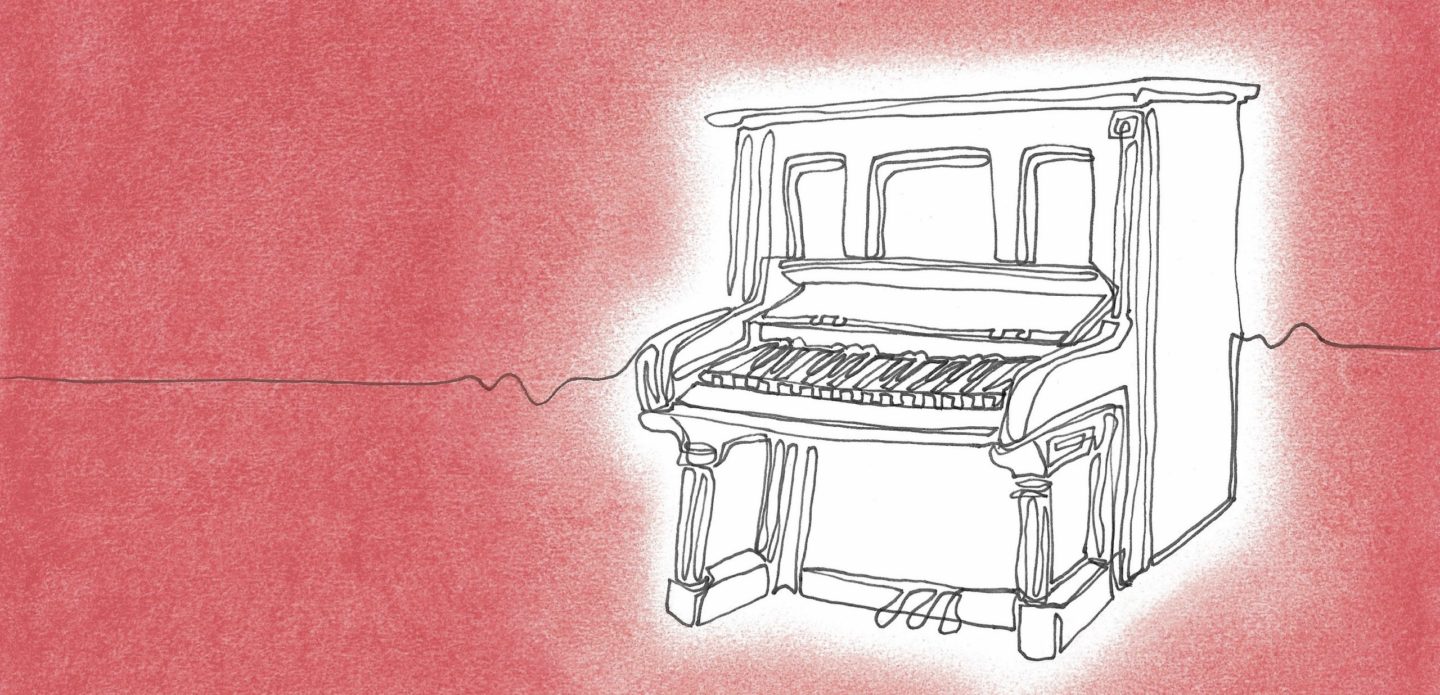Weimar – Part 2
Today was an incredible, but emotionally exhausting experience. We visited Buchenwald, a major concentration camp during the Holocaust. The visit was altogether chilling from the start. We began in the heart of Weimar, the sun shining, and within 15 minutes were were in a wasteland, the sky dark and snowing.
My professor brought us down to the main gates of the camp, bearing the phrase Jedem Das Seine. He explained that the phrase could be translated a number of ways – “To each his own,” “Every man for himself,” or “Everyone gets what they deserve.” Regardless of which translation you choose, they are all equally powerful and disturbing. He went on to explain that Buchenwald was not thought of as an extermination camp so much as a transport camp. Jews, gypsies, homosexuals, “asocials” and others from 50 different countries were brought here, to either be redirected, murdered, or die of starvation, disease, or simply being worked to death. As we stared out at the barren remains of mass graves and bunkers, a horrible shiver ran right through me. I felt the relentless wind and snow around me and just thought of all the men, women, and children who stood in this very spot, with probably a fraction of the clothes I was wearing and the food in my stomach and the sleep in my bones. It’s a feeling I won’t soon forget.
After a short documentary film on the camp, we were left to explore ourselves. I could go into all of the details, facts, and figures that I learned during my visit, but to do that seems to undervalue how the space made me feel. I first willed myself to go into the crematorium, and when I entered the room with the ovens, I cracked. The air left my body and my eyes welled up. I had to escape.
The museum, while calmer, did not fully return my breath. Seeing countless letters, records, and tokens of inmates made me fully internalize the Holocaust’s existence; it finally was palpable for me. We are all taught in American History class growing up about the Holocaust, but it always seems distant from us, separate. It is hard to conceptualize so systematic, widespread, and evil an extermination of a people, though we Americans committed similar deeds with the Native Americans and African Americans. Seeing the inmates’ personal relics returned them their souls; they had families, they went to work every morning, they had hobbies. And suddenly, they were snatched up, condemned to die through murder, starvation, disease, or plain exhaustion. It is despicable; it is incomprehensible. But it happened.
And so as the wind whipped around me, I could not do anything but throw away all the little discomforts I felt. Yes, I was tired and cold and hungry. But how dare I dwell on those things when the people who died at Buchenwald, right where I was standing, suffered far, far greater atrocities? I am enormously thankful for this experience, but I need some time to digest it.
The evening was altogether different. We attended Otello, the Italian opera version of the Shakespeare play. We knew we were in for an experience since the entire opera would be in Italian with only German subtitles. On top of that, our professor Michael warned us that of late, German directors really like to take an avant garde approach to their plays – unique, but often weird and irrelevant interpretations. This wasn’t too bad, but some women were dressed as trashy 80s fitness dancers and there was a fat, shirtless man dressed as a mermaid, so that was…different.
The real point of contention was Othello himself. Othello is the Moore of Venice, so he is usually played by a Black man. In this version, he was played by a white man, which I and several of my classmates had serious qualms about – and we were right to have these qualms. Othello first emerged with haphazard dark smears on his face, hinting at black face. Within the scene, Desdemona, his wife, wipes off the smears, seemingly indicating that Othello was simply dirty (he had just returned from battle). However, later on, when he loses his mind out of jealousy, he proceeded to smear dark paint thoroughly over his face and body. Following this, he started acting like an animal, and the other characters recoiled from him as if he were a beast. To make matters worse, there was also a Black male who was in the company, and he perfectly fit the description of Othello: tall, heavy-set, bearded, charming smile. This interpretation was inexcusably racist on all fronts, and one POC classmate of mine departed before the show’s end.
On a positive note, we are off to Kothen tomorrow, origin of the Brandenburg concertos and the Cello Suites — and hopefully away from overt racism.
